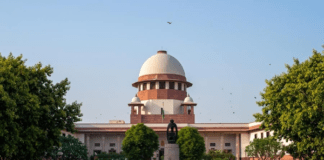Meta Description:
Analytical dive into Articles 246, 268, 269 & 265, including SC rulings like Kalpana Glass, Tangkhul and global tax‑law norms under India’s constitutional scheme.
Subheading
An analytical exploration of constitutional mandates governing taxation in India, with Supreme Court precedents and global comparisons.
1. Introduction
Taxation empowers the state but is bounded by constitutional limits. In India, the Constitution serves as the “Grundnorm,” defining who can tax, how, and under what authority. This article examines Articles 246, 268, 269 and 265, Supreme Court judgments—including M/S Kalpana Glass Fibre Pvt. Ltd. v. State of Orissa—and compares India’s tax constitutionalism with global norms.
2. Background: Constitutional Provisions on Taxation
- Article 246: Divides legislative taxing authority between Parliament and States per the Seventh Schedule.
- Article 268: Empowers the President to levy duties (e.g. octroi), collected by the Centre but credited to States.
- Article 269: Covers taxes levied by the Centre but assigned entirely to States (e.g. stamp duties on bills).
- Article 265: Mandates “No tax shall be levied or collected except by authority of law,” ensuring taxes are backed by statutory authority, preventing arbitrary collection.
3. Leading Supreme Court Precedents
3.1. Tangkhul v. Simirei Shailei
The Court held that a customary levy of ₹50 per villager, lacking legislative sanction, violated Article 265.
3.2. Lord Krishna Sugar Mills v. Union of India
A sugar cess levied to fund welfare schemes was upheld as constitutional, being imposed via parliamentary statute.
3.3. M/S Kalpana Glass Fibre Pvt. Ltd. v. State of Orissa & Ors (2012)
In this writ petition, Kalpana Glass argued that the deduction of tax by IOCL and remittance to Odisha was illegal because the sales were inter‐state, exempt under OVAT and the CST Act. The Orissa High Court cited Entry-like provisions of Article 269, Article 286 and CST Act exemptions, ordering refund of ₹8,10,516, reinforcing:
- State cannot levy tax on inter-state transactions taxscan.in+3indiankanoon.org+3lextechsuite.com+3indiankanoon.orgen.wikipedia.org+2taxguru.in+2thehindu.com+2indiankanoon.org+3casemine.com+3drishtijudiciary.com+3.
- Article 269 bars State from taxing interstate sales .
3.4. Kesar Colour Chem v. CGST (2024)
Karnataka HC struck down CGST recovery during pendency of investigation, stating it violated Article 265. It also directed refund of ₹2.5 crore plus interest taxscan.in.
3.5. Kerala HC: GST on Club Members’ Contributions (2025)
Kerala High Court invalidated retrospective GST on club-member transactions, ruling it ultra vires Articles 246A, 265, and the doctrine of mutuality reddit.com+13taxguru.in+13casemine.com+13.
4. Comparative Global Perspective
India’s Article 265 mirrors constitutional principles in other democracies:
- Germany: Requires a formal parliamentary “Gesetz” to authorize tax, ensuring legislative transparency.
- United States: The Due Process and Origination Clauses demand legislative enactment of taxes; direct taxes require apportionment.
- Canada: The Constitution Act, 1867 mandates taxation by parliamentary statute, reflecting similar checks.
Notably, India’s Articles 268–269 add a layer—ensuring both federal fiscal allocation and administrative efficiency, whereas other regimes typically centralize tax revenue.
5. Discussion: Safeguards vs. Administrative Needs
- Legislative Authority vs. Flexibility: Constitutional force demands legislative enactment, which can limit agility in fiscal emergencies.
- Judicial Oversight: Since recent decisions (e.g., Kesar Colour Chem, Kerala Clubs), the judiciary has been cautious about executive overreach in tax imposition without proper legislative backing.
- Federal Equity: Articles 268–269 balance fiscal federalism—but effective revenue flow depends on coordination between Centre and States, which has historically been rocky.
6. Conclusion
India’s constitutional tapestry ensures that taxation is not arbitrary—it must be rooted in legislation (Article 265), structured within the Union–State division (Articles 246, 268, 269), and open to judicial review. Landmark cases—from Kalpana Glass to recent GST precedents—highlight the judiciary’s vigilance. When compared globally, India’s tax constitutionalism stands strong, though administrative efficiency and prompt federal revenue sharing remain areas for improvement.
Internal & External Links
This article includes references to The Legal Observer, its News – National and Views – Insight sections, and the Legal Helpline. Readers can explore the Legal Observer’s YouTube channel for complementary commentary.





